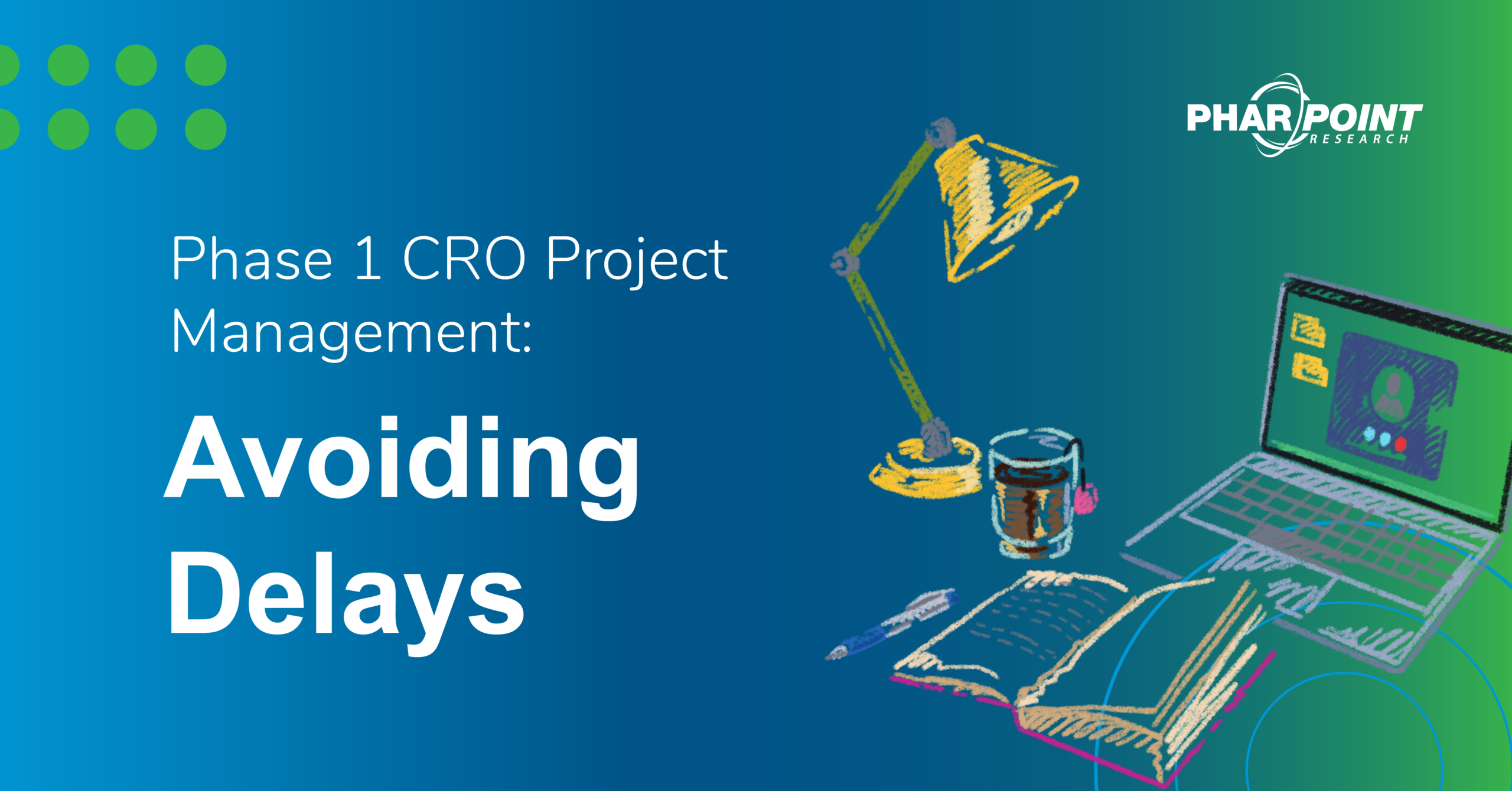The Ripple Effect of Delays in Phase 1 Studies
Clinical research is a team effort that relies on ongoing, timely input from multiple parties. With each function playing its own critical role, one missed deadline or miscommunication can cause setbacks that impact multiple groups, running the risk of much larger study delays.
To mitigate this risk, it is important to understand the factors that most frequently lead to study delays so you can proactively manage timeline expectations and develop contingency plans where needed.
Some real world-examples of seemingly small actions that could cause delays in your Phase 1 clinical trial include:
- Poorly timed biological sample that arrive at their destination on weekends or holidays when operations are closed and put sample stability at-risk;
- Lack of plans and processes for out-of-office coverage of key study staff;
- Inadequate cross-functional communication or ambiguity surrounding timelines for key deliverables; or
- Delays in data entry or data transfers used to support safety monitoring committee decisions.
Lab Selection and Sample Management
As Phase 1 trials require close monitoring to make decisions surrounding participant safety and dosing, a rapid turnaround time for safety labs is essential.
Oftentimes, local labs are optimal for Phase 1 studies, especially for smaller studies with fewer sites.
For studies using central labs, teams should be prepared for slower turnaround times if samples get shipped offsite or need to be forwarded to additional third-party labs for analysis. Timing-wise, these data transfers are more complex to manage and clear tasks must be diligently coordinated across teams surrounding sample handling and analysis for all study deadlines.
Data Visibility: Supporting Timely Safety Decisions
In Phase 1 trials, safety signals must be assessed continuously and quickly to make informed decisions before proceeding, especially when it comes to dose escalations. Study teams rely on near real-time data to determine safety and tolerability, and any delays in the receipt and review of this data can compromise decision-making and trial progression.
At PharPoint, our approach to data visibility includes:
- Preference for site partners who can enter EDC data same-day or within 24-48 hours;
- Sponsor access to central/local lab portals for visibility of safety lab data as its resulted; and
- Client-centric specialty vendors that have demonstrated both quality and timeliness in their deliverables.
Timeliness shouldn’t stop at data visibility alone – timely delivery of analyses such as output for safety monitoring is just as important.
How Experienced, Adaptable Clinical PMs Drive Success
It is important to bring on a CRO that has Phase 1 experience and can help anticipate and mitigate the risk of bottlenecks.
By working alongside a PM who understands the challenges of Phase 1 trials, Sponsors can gain the support they need to:
- Proactively identify risks to timelines and study conduct;
- Ensure quality and continuously assess and act on safety signals in a timely manner;
- Facilitate clear communication across all stakeholders;
- Align cross-functional teams to keep deliverables on track;
- Leverage industry experience to make informed decisions and keep operations as seamless as possible.
Conclusion
Strong project management and strategic planning are the backbone of a successful early-phase program. For Phase 1 trials, delays are not just frustrating – they can be costly and may pose safety risks.
For more information about PharPoint Research’s experience providing Phase 1 CRO services, reach out to our team.

